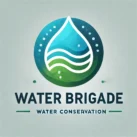INDUSTRIES
Water conservation in industrial settings is essential for both environmental protection and operational efficiency. Here are some practical ways to manage water use effectively across different areas of an industrial facility.
Employee training:
Build understanding in your employees why water is important and let them innovate ways to water conservation. You can announce awards in your company for identifying and innovative solutions to reduce water consumption. (www.ppsthane.com)
Production facilities:
In production processes, water optimization is critical. By redesigning processes to use water more efficiently, industries can reduce waste and save resources. For example, implementing closed-loop systems that recycle and reuse water significantly reduces the need for fresh water intake. Upgrading to water-efficient machinery, such as low-flow valves and high-pressure cleaning systems, is another effective step. Regular maintenance is also key—inspecting pipes, hoses, and equipment for leaks and inefficiencies prevents water loss and reduces maintenance costs over time.
Hygienic measures:
In cleaning and sanitation, efficient practices help conserve water while maintaining hygiene. High-pressure, low-volume cleaning tools can reduce water use, and switching to waterless cleaning products or techniques in certain areas can be highly effective. Recycling cleaning water where possible is also beneficial, especially in non-critical cleaning processes.
Recycling:
Wastewater management plays a vital role in industrial water conservation. Establishing on-site treatment facilities allows for the recycling of wastewater, which can then be used for non-potable purposes, such as landscape irrigation or cooling. Monitoring discharge ensures that wastewater meets environmental standards before it’s released, which protects local water sources and supports water sustainability. Partnering with local authorities to explore ways to reuse industrial wastewater within the community is another impactful measure.
